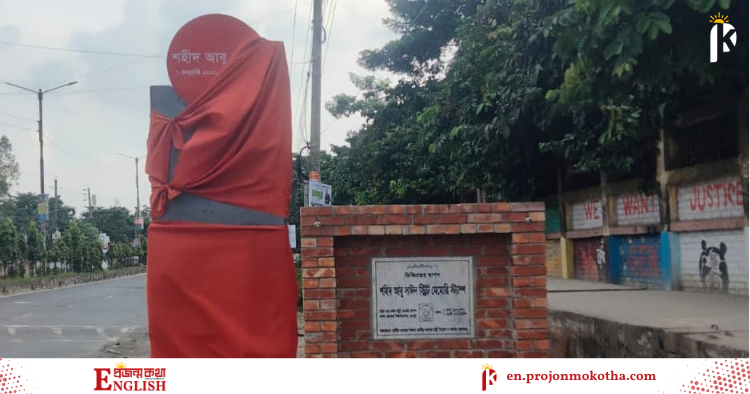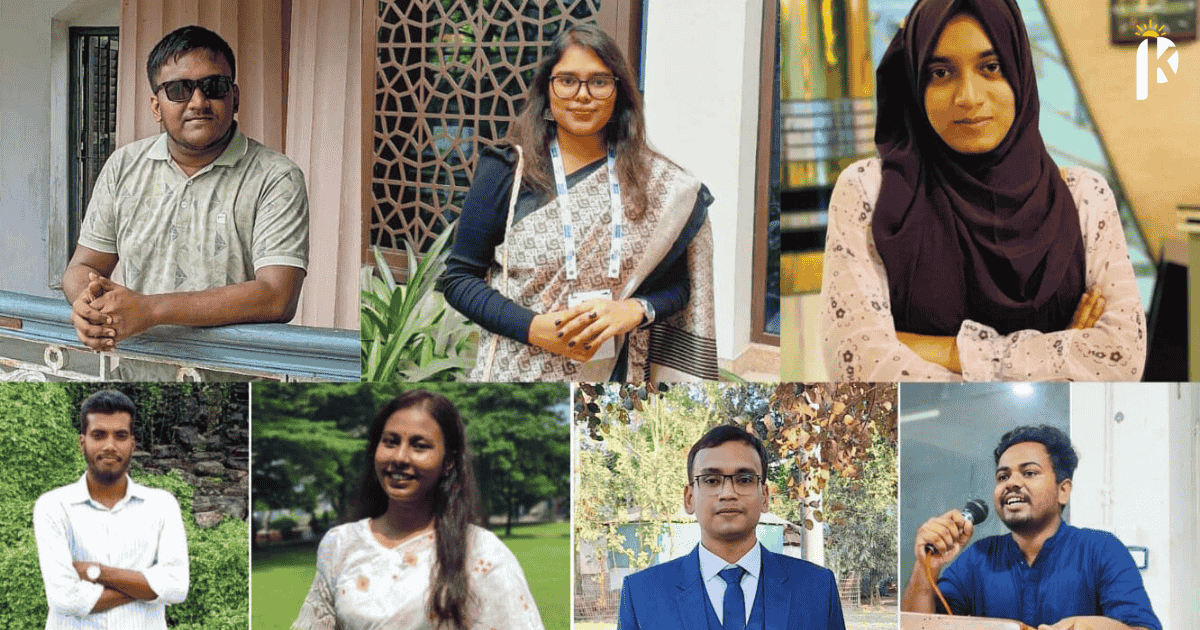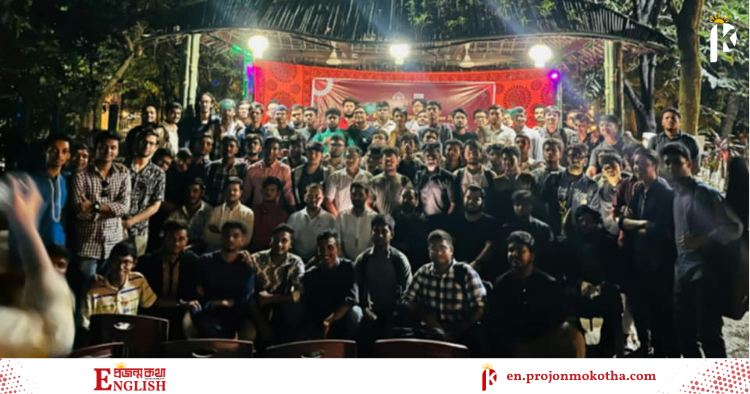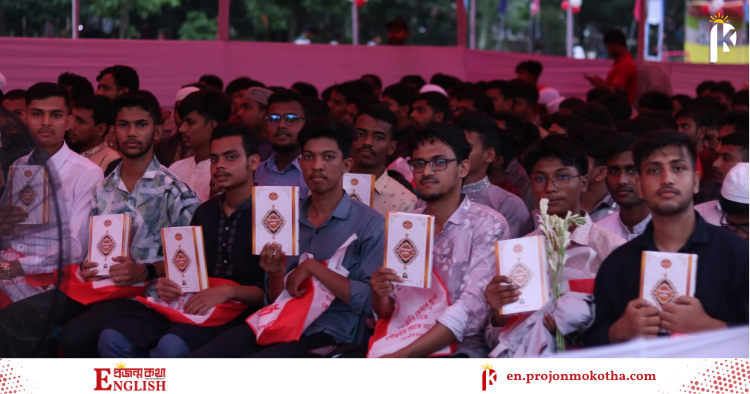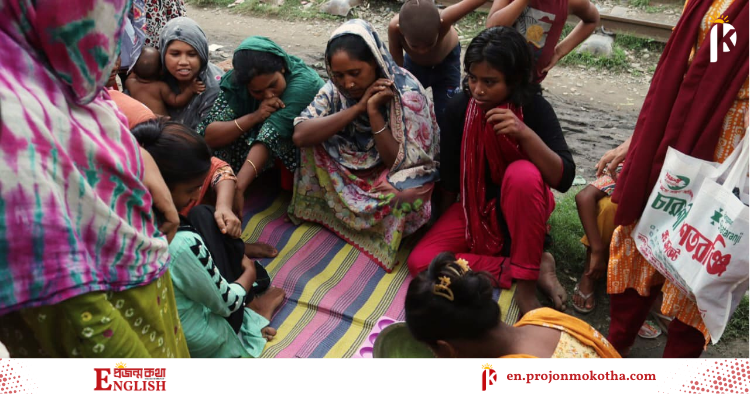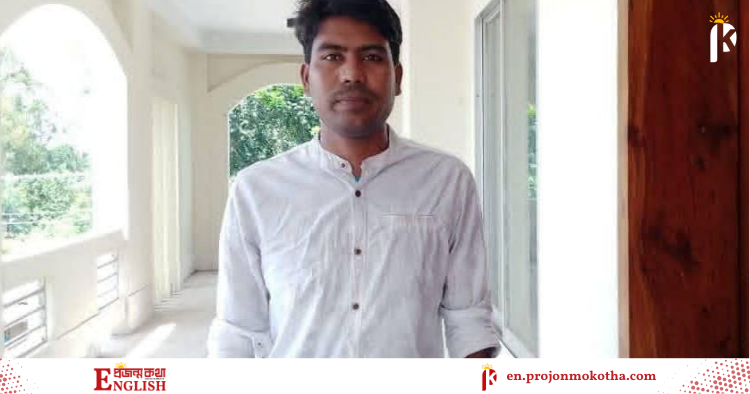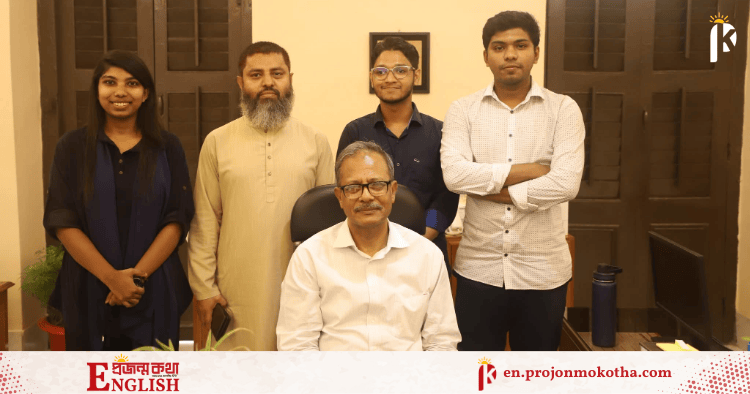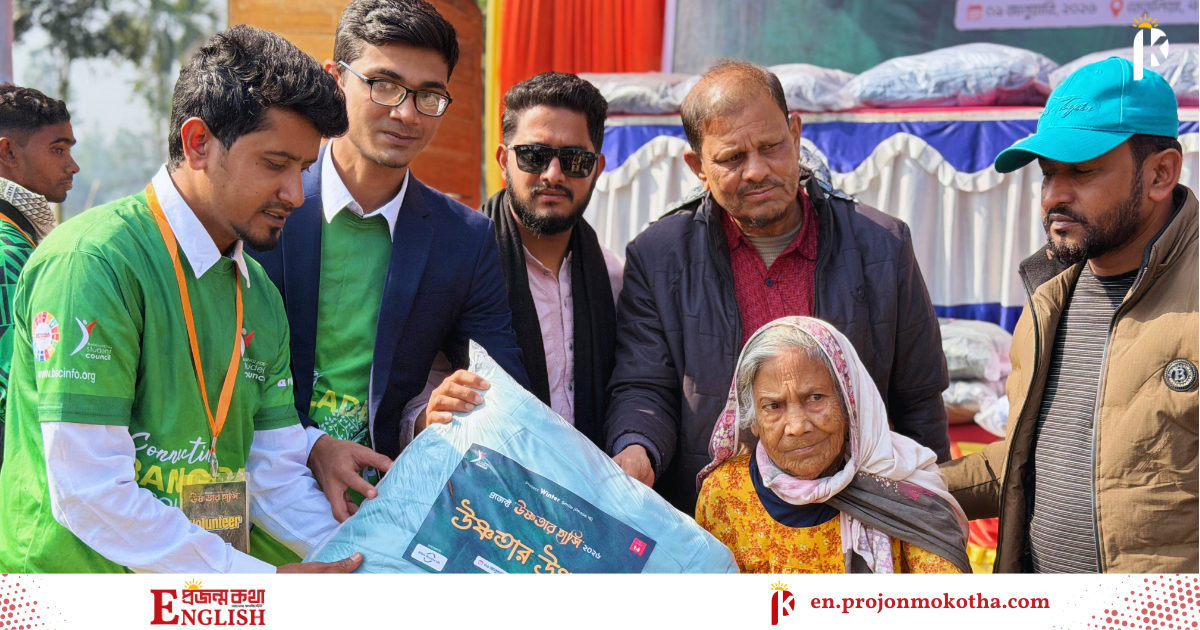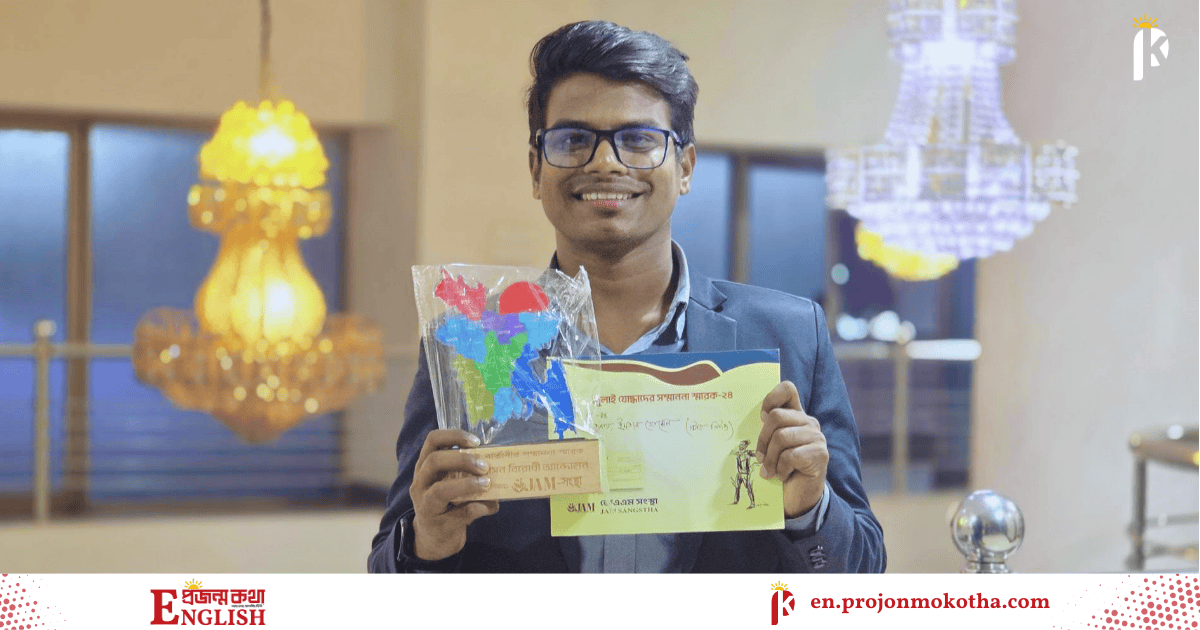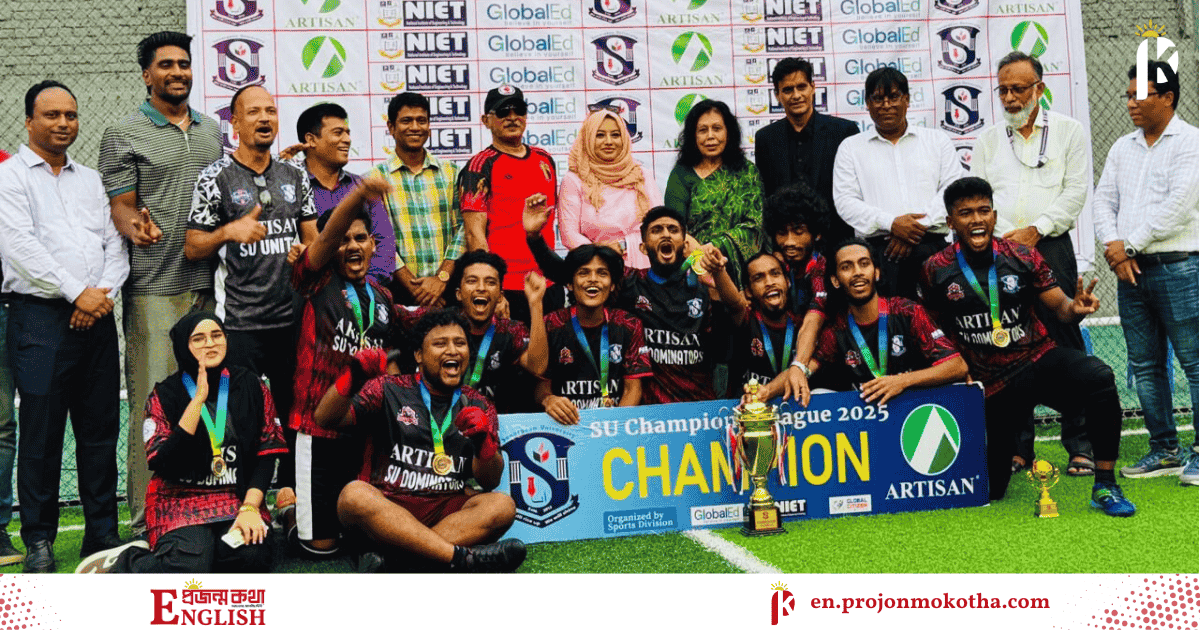Sayed Street Memory Stamp Wrapped with Red Cloth for One and Half Months

- Publish : 10:33:31 am, Sunday, 31 August 2025
- / 35
The Street Memory Stamp installed in front of the Shaheed Abu Sayed Gate of Begum Rokeya University (BRUR) in Rangpur, in honor of the first martyr of the July Movement, Abu Sayed, has remained wrapped in red cloth for the past one and a half months. Students allege that despite repeated demands, authorities have taken no initiative to correct factual inconsistencies in the memorial inscription.
According to university sources, the stamp was installed on July 16 this year under the initiative of the Ministry of Local Government, Rural Development, and Cooperatives (LGRD) and funded by the Local Government Engineering Department (LGED). The installation coincided with the government’s declaration of July 16 as Shaheed Dibosh (Martyrs’ Day) in remembrance of Sayed’s sacrifice during the Anti-discrimination Student Movement, popularly known as the July Movement.
The inauguration ceremony was expected to be conducted by prominent advisers of the interim government. Instead, they inaugurated the university gate and museum foundation stone, while Sayed’s father, Mokbul Hossain, and UGC Chairman Prof. Dr. Foyez Ahmed later unveiled the stamp. Soon after, glaring errors in the inscription came to light.
The inscription described Abu Sayed as the “Son of Rangpur” who embraced martyrdom “with both hands raised to the sky.” However, critics argue that it distorted facts in several ways:
-
Incorrect birth year: Sayed’s actual birth date, December 10, 2000, was replaced with January 1, 2001.
-
Omission of BRUR affiliation: Despite being a student of Begum Rokeya University, this was not mentioned.
-
Misrepresentation of martyrdom: The message failed to specify that his death was the result of a police shooting.
The inscription read:
“Son of Rangpur, Shaheed Abu Sayed. His head remained ever high against tyranny and oppression. He used to say, ‘If needed, I will embrace martyrdom, but I will never bow down.’ On July 16, he extended both hands towards the sky and embraced martyrdom. Thereafter, all of Bangladesh rose with the vow of eternal revolution.”
The inconsistencies triggered widespread criticism on social media, with many accusing the authorities of attempting to distort history.
On July 18—just two days after installation—Sayed’s fellow students and co-activists covered the stamp with red cloth. They demanded immediate correction of the inscription. Leaders of the Anti-discrimination Student Movement, including Md. Shamsur Rahman Sumon and Md. Arman Hossain, warned that leaving the errors uncorrected would undermine the spirit of the July Movement.
Despite assurances from university and ministry representatives, no correction has been made to date.
On August 20, LGRD Adviser Asif Mahmud Sajib Bhuiyan visited Rangpur and paid tribute at the Shaheed Abu Sayed Memorial Monument at the newly named Shaheed Abu Sayed Square. Although he praised Sayed’s sacrifice, he made no announcement regarding the stamp’s correction, further frustrating students and activists.
Students remain vocal in their frustration.
Former movement coordinator Md. Shamsur Rahman Sumon said:
“We wrapped the stamp with red cloth so that inaccurate words could not stand as history. Authorities promised correction immediately, but now more than a month has passed. This negligence dishonors the first martyr of the July Movement.”
Another student leader, Md. Arman Hossain, added:
“Before installing the stamp, no one consulted us. As a result, even basic facts like Sayed’s date of birth were written wrongly. We informed the administration, yet nothing has been done. This indifference is deeply disappointing.”
BRUR Registrar Dr. Md. Harun-or-Rashid clarified that the university had no role in constructing the stamp. He said it was implemented through the joint initiative of the Ministry of LGRD, LGED, the Rangpur District Administration, and the Roads and Highways Department.
“Since it was built under their supervision, they alone can say when the errors will be corrected,” he stated.
Attempts to contact Rangpur Deputy Commissioner Mohammad Robiul Faisal for comment were unsuccessful.
Abu Sayed, a student of the English Department at BRUR (2019–20 session), was killed on July 16, 2024, during a demonstration in front of BRUR Gate No. 1 on the Dhaka–Kurigram Highway. Witnesses recall him spreading his arms open before police rifles when he was shot. He died on the way to hospital.
Born in Babanpur village, Pirganj upazila, Rangpur, Sayed was the youngest son of Mokbul Hossain and Monowara Begum. His martyrdom galvanized the July Movement, which later contributed to the fall of the Awami League government.



